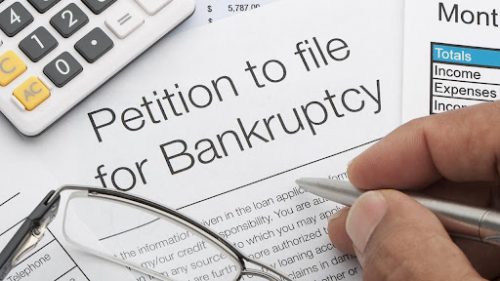
Bankruptcy can happen for many reasons. It could be because you lost your job or experienced a decrease in income. Job losses caused by the COVID-19 pandemic are one example. Other cases involve unexpected expenses, such as medical bills, that could put people over the edge financially.
Here are the differences between chapter 7 and chapter 13 bankruptcies and how they work. Be sure and research bankruptcy attorneys in Montgomery before making a decision that you won’t be able to undo.
How Chapter 7 Bankruptcy Works
A Chapter 7 bankruptcy will allow you to pay creditors without a repayment plan. Instead, the court will appoint a bankruptcy trustee to help you sell any nonexempt property. This benefits creditors. Most household items will be protected.
Chapter 7 bankruptcy is a good option for those with low incomes and little to no assets. Even if you lose your property, Chapter 7 may still be worth it. Consider whether the amount you can pay is greater than the value of your property.
Not everyone qualifies for Chapter 7 bankruptcy, however. You may be eligible to file Chapter 13 bankruptcy if you earn too much to meet your income requirements.
Understanding where you are headed (whether you are appropriately filing type 7 bankruptcy papers) is vital, hence why it’s essential to have legal assistance from a skilled chapter 7 bankruptcy lawyer.
Frequently Asked Questions about Chapter 7 Bankruptcy
How can I determine if I am eligible for Chapter 7 bankruptcy?
You are eligible if your household income is less than the state’s median household income. You will also be eligible if your income is not sufficient to repay creditors in a Chapter 13 repayment program.
What happens if I file Chapter 7 bankruptcy?
It is up to your state whether you are eligible for the federal bankruptcy exempt or State Exemption laws. These types of property can be kept in bankruptcy, even though exemption laws may differ.
- Home equity
- Insurance
- Retirement plans
- Personal property
- Public benefits
- Tools used for the job
For other exemptions, check your state’s exemption laws.
Which bankruptcy chapter should I choose: Chapter 7 or Chapter 13?
If they meet the eligibility requirements, most people file Chapter 7 bankruptcy. Chapter 7 is a popular option because, unlike Chapter 13, it doesn’t require filers to pay back any portion of their debts.
How Chapter 13 Bankruptcy Works
Chapter 13 bankruptcy is for those with regular income and enough money each month to repay at least some of their debts.
Chapter 13 bankruptcy is typically for debtors who are:
- Don’t meet the criteria for Chapter 7, but need debt relief to lower their credit card payments. You can stop litigation and prevent a wage garnishment through a Chapter 13.
- Unable to pay non-dischargeable bills such as alimony arrears or child-support arrears.
- Behind on your car or house payment? You want to catch up and get the property back on track.
Chapter 13 bankruptcy does not allow you to sell your property. You must, however, pay creditors a sum equal to the value of your nonexempt property. You must repay all or part of your debts via a repayment program. The amount you pay will depend on your income, expenses and type of debt.
Chapter 13 Frequently Asked Question
What percentage of my debts will I have to pay if I file Chapter 13 bankruptcy?
It depends on what type of debt you have. These are some guidelines:
- Bankruptcy fees – You will have to pay 100% of the bankruptcy filing fee, trustee commissions and bankruptcy attorney’s fees.
- Priority debts – You are required to pay 100% of the following debts.
- child and/or spousal support arrears to the parent/child;
- most tax debts, except those due at least 3 years prior to your bankruptcy filing;
- wages and salaries you owe employees up to a certain limit;
- and contributions to an employee benefit plan.
- Secured debts.
- Unsecured, non-priority debts – Depending on your income and length of repayment, your ability to repay the debt, as well as the value of the non-exempt property you own (which you will need to pay), the amount that you owe will vary between 0% and 100%.
What is the maximum repayment period I can expect if I file Chapter 13 bankruptcy?
Your household’s gross income must be greater than the state’s median yearly income. This means that your plan can last at least five years unless you can pay all of your unsecured debt within a shorter timeframe. You can propose a plan for three years if your income is lower than the state’s median annual income.
We are facing foreclosure. Can we keep our house if we file Chapter 13 bankruptcy?
A mortgage arrearage (late unpaid payments) can be paid off over the course of a three-to-five-year repayment plan. This will require you to have enough income to pay your mortgage payments and the arrearage.
After you file your Chapter 13 bankruptcy petition, the “automatic stop” will be in effect. This means that foreclosure proceedings are halted until your repayment plan has been approved or rejected by the court.
If I approve your petition, the court will stop foreclosure proceedings until you have submitted your Chapter 13 bankruptcy petition. You can avoid foreclosure by making all required payments and staying current with your monthly mortgage payments.
I owe back taxes to the IRS—can Chapter 13 bankruptcy help?
Yes. Although you must repay 100% of your tax debt (unless it qualifies for discharge because of its age), you can do so over three to five years.
Conclusion
Get a free consultation with a qualified bankruptcy attorney today while you can still control your financial future.
Interesting Related Article: “Should I File for Bankruptcy? How to Know When It’s Time for Bankruptcy“

